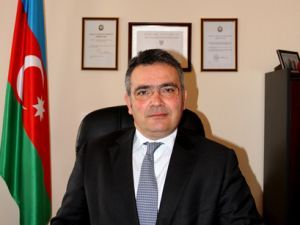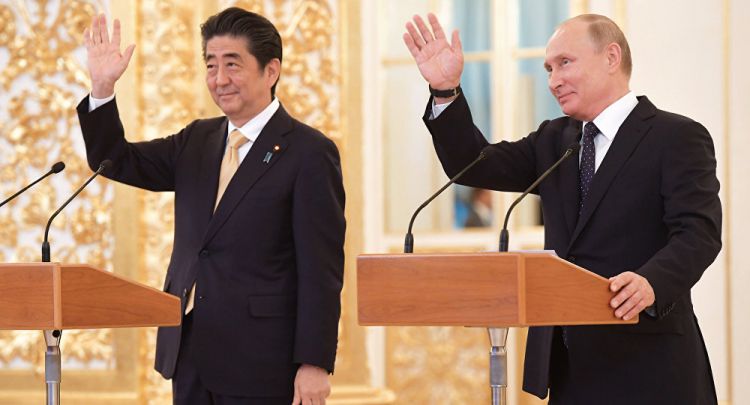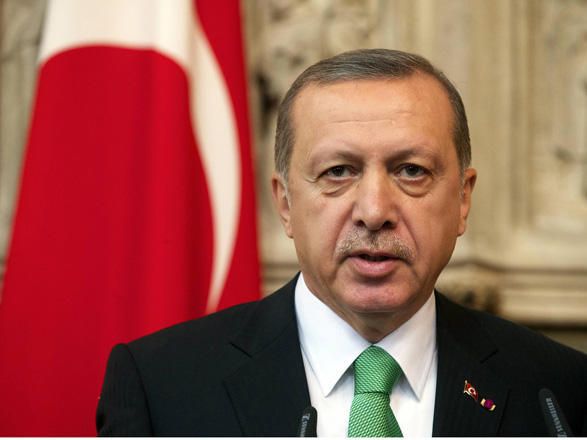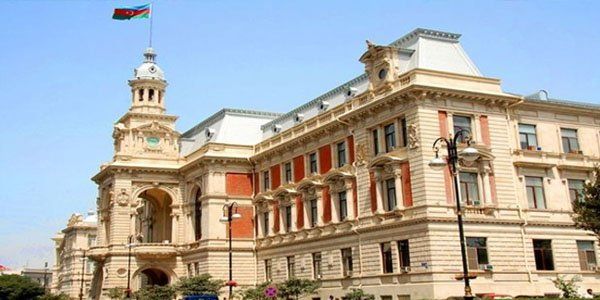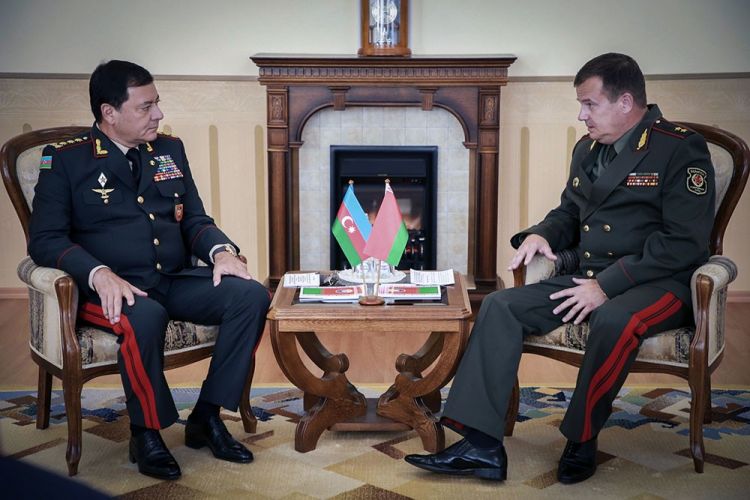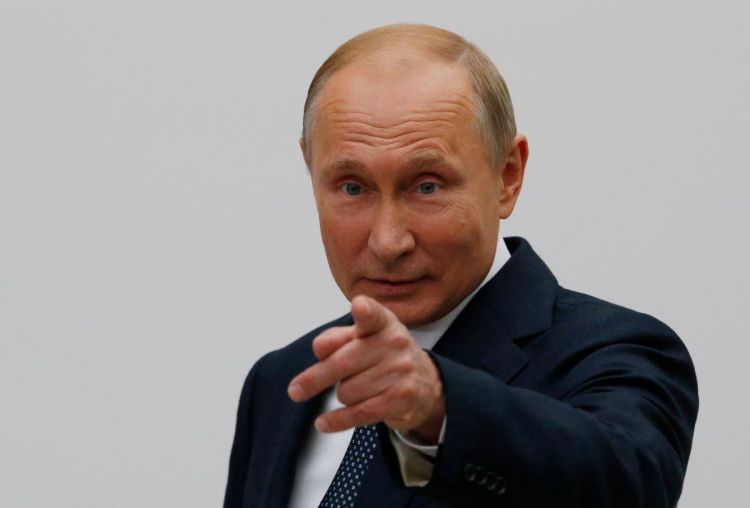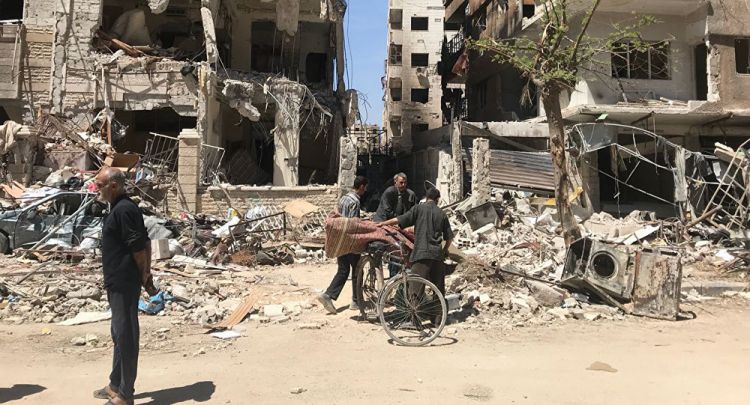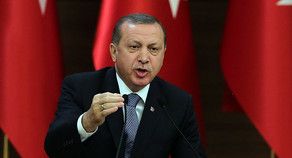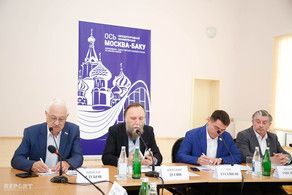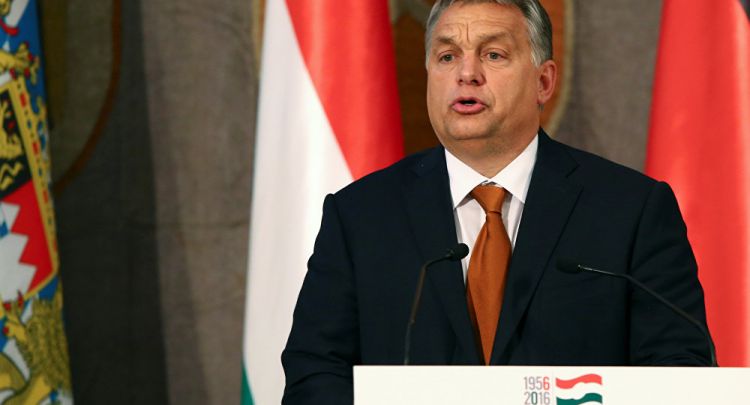Azerbaijani envoy stresses need to involve EU to be more vocal about Karabakh conflict settlement
“Azerbaijan has had 20% of its territory occupied by a foreign country, Armenia. We have more than 1 million refugees and of course no Azerbaijanis in the occupied territories. This is a great problem for Azerbaijan and we have tried to find a solution to this problem using dialogue,” the ambassador said.
Isgandarov accused Armenia of maintaining the status quo in the conflict.
“In the case of Armenia, they would like to keep the status quo, but all the others want to change it because it is absolutely unacceptable when one country of the Eastern Partnership is occupying the territory of another country,” the ambassador said expressing the need to involve the European Union to be more vocal about this.”
“We have had so many resolutions, so many statements of support for the territorial integrity of Azerbaijan from the European Union officials and institutions,” he said, adding. “We have very serious messages and the new global strategy was adopted by the EU, and the conclusions from the November Foreign Affairs Council. Everywhere it is clear that the EU is in favor of and supports the territorial sovereignty of all the countries inside and outside the EU.”
This is a crucially important message for Azerbaijan, according to the ambassador.
“In other cases, like Georgia and Moldova, the EU has been involved directly in the resolution of conflicts. This is not the case for us. But we would like to have a very clear position that should be in accordance with international law. And now we see it. We are very glad to see this strength,” Isgandarov concluded.
The Nagorno-Karabakh conflict entered its modern phase when the Armenian SRR made territorial claims against the Azerbaijani SSR in 1988.
A fierce war broke out between Azerbaijan and Armenia over the Nagorno-Karabakh region of Azerbaijan. As a result of the war, Armenian armed forces occupied some 20 percent of Azerbaijani territory which includes Nagorno-Karabakh and seven adjacenAdistricts (Lachin, Kalbajar, Aghdam, Fuzuli, Jabrayil, Gubadli and Zangilan), and over a million Azerbaijanis became refugees and internally displaced people.
The military operations finally came to an end when Azerbaijan and Armenia signed a ceasefire agreement in Bishkek in 1994.
Dealing with the settlement of the Nagorno-Karabakh conflict is the OSCE Minsk Group, which was created after the meeting of the CSCE (OSCE after the Budapest summit held in Dec.1994) Ministerial Council in Helsinki on 24 March 1992. The Group’s members include Azerbaijan, Armenia, Russia, the United States, France, Italy, Germany, Turkey, Belarus, Finland and Sweden.
Besides, the OSCE Minsk Group has a co-chairmanship institution, comprised of Russian, the US and French co-chairs, which began operating in 1996.
Resolutions 822, 853, 874 and 884 of the UN Security Council, which were passed in short intervals in 1993, and other resolutions adopted by the UN General Assembly, PACE, OSCE, OIC, and other organizations require Armenia to unconditionally withdraw its troops from Nagorno-Karabakh.
Karabakh Today
“Azerbaijan has had 20% of its territory occupied by a foreign country, Armenia. We have more than 1 million refugees and of course no Azerbaijanis in the occupied territories. This is a great problem for Azerbaijan and we have tried to find a solution to this problem using dialogue,” the ambassador said.
Isgandarov accused Armenia of maintaining the status quo in the conflict.
“In the case of Armenia, they would like to keep the status quo, but all the others want to change it because it is absolutely unacceptable when one country of the Eastern Partnership is occupying the territory of another country,” the ambassador said expressing the need to involve the European Union to be more vocal about this.”
“We have had so many resolutions, so many statements of support for the territorial integrity of Azerbaijan from the European Union officials and institutions,” he said, adding. “We have very serious messages and the new global strategy was adopted by the EU, and the conclusions from the November Foreign Affairs Council. Everywhere it is clear that the EU is in favor of and supports the territorial sovereignty of all the countries inside and outside the EU.”
This is a crucially important message for Azerbaijan, according to the ambassador.
“In other cases, like Georgia and Moldova, the EU has been involved directly in the resolution of conflicts. This is not the case for us. But we would like to have a very clear position that should be in accordance with international law. And now we see it. We are very glad to see this strength,” Isgandarov concluded.
The Nagorno-Karabakh conflict entered its modern phase when the Armenian SRR made territorial claims against the Azerbaijani SSR in 1988.
A fierce war broke out between Azerbaijan and Armenia over the Nagorno-Karabakh region of Azerbaijan. As a result of the war, Armenian armed forces occupied some 20 percent of Azerbaijani territory which includes Nagorno-Karabakh and seven adjacent districts (Lachin, Kalbajar, Aghdam, Fuzuli, Jabrayil, Gubadli and Zangilan), and over a million Azerbaijanis became refugees and internally displaced people.
The military operations finally came to an end when Azerbaijan and Armenia signed a ceasefire agreement in Bishkek in 1994.
Dealing with the settlement of the Nagorno-Karabakh conflict is the OSCE Minsk Group, which was created after the meeting of the CSCE (OSCE after the Budapest summit held in Dec.1994) Ministerial Council in Helsinki on 24 March 1992. The Group’s members include Azerbaijan, Armenia, Russia, the United States, France, Italy, Germany, Turkey, Belarus, Finland and Sweden.
Besides, the OSCE Minsk Group has a co-chairmanship institution, comprised of Russian, the US and French co-chairs, which began operating in 1996.
Resolutions 822, 853, 874 and 884 of the UN Security Council, which were passed in short intervals in 1993, and other resolutions adopted by the UN General Assembly, PACE, OSCE, OIC, and other organizations require Armenia to unconditionally withdraw its troops from Nagorno-Karabakh.
